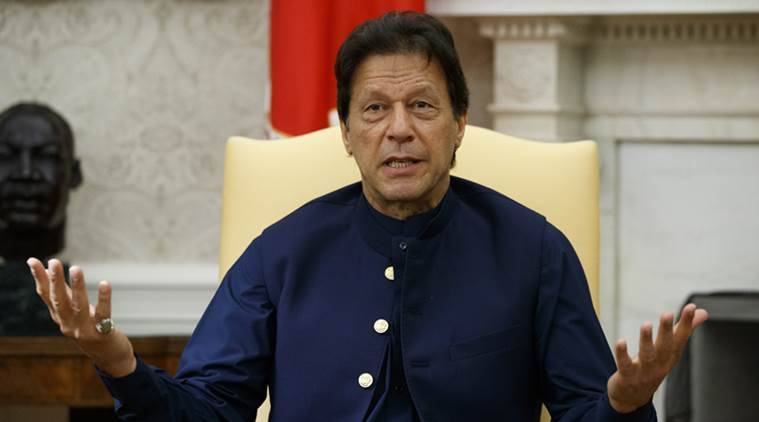
Prime Minister Imran Khan in his address to the nation on Monday announced that the government will hold ‘Kashmir Hour’ and called upon all Pakistanis to take part in the half-hour long event. An official event will be held on Friday (tomorrow) to show solidarity with Kashmiris living in Jammu and Kashmir.
National anthems of Pakistan and Kashmir will be played while people stand in respect and sirens will be blared to mark ‘Kashmir Hour’. The event would be observed from 12 o’clock noon till 12:30 pm and traffic signals in Islamabad would remain red.
The announcement by the PM was passionate and reminds one of similar passionate outbursts by our leaders in the past, but what purpose does it serve in terms of addressing the Kashmir issue? The move has been met with criticism by those who think it is mere eyewash because the government’s Kashmir policy had failed.
Social media users have taken the lead in criticising the government’s move. They say that observing ‘Kashmir Hour’ is not the right way to show solidarity with Kashmiris.
But is it right to single out the PTI government for its inaction over Kashmir when the past governments have also failed to lobby for the cause?
Imran Khan was always critical of past governments over their Kashmir polices. He termed former PM Nawaz Sharif ‘Modi ka yaar’ and accused him of betraying the Kashmiris by putting the Kashmir issue on the back-burner during talks with India. And when the opportunity presented itself and he became the PM, he is as clueless about the Kashmir conundrum as were past leaders.
Once the PM reached out to the international community for help, he realised that his country stood in utter isolation on the international arena owing to decades of weak diplomacy, flawed policies and lack of lobbying in international capitals.
Foreign Minister Shah Mehmood Qureishi’s statement that “we will not be welcomed with garlands of flowers around our necks at UN” says a lot about Pakistan’s standing among the comity of nations.
Now that much water has flown down the bridge, what we can do as a nation is to avoid taking cosmetic measures that have proved ineffective thus far. And if we want the world to listen to us then it is essential that we initiate a process of aggressive lobbying on the diplomatic front.
National anthems of Pakistan and Kashmir will be played while people stand in respect and sirens will be blared to mark ‘Kashmir Hour’. The event would be observed from 12 o’clock noon till 12:30 pm and traffic signals in Islamabad would remain red.
The announcement by the PM was passionate and reminds one of similar passionate outbursts by our leaders in the past, but what purpose does it serve in terms of addressing the Kashmir issue? The move has been met with criticism by those who think it is mere eyewash because the government’s Kashmir policy had failed.
Social media users have taken the lead in criticising the government’s move. They say that observing ‘Kashmir Hour’ is not the right way to show solidarity with Kashmiris.
But is it right to single out the PTI government for its inaction over Kashmir when the past governments have also failed to lobby for the cause?
Imran Khan was always critical of past governments over their Kashmir polices. He termed former PM Nawaz Sharif ‘Modi ka yaar’ and accused him of betraying the Kashmiris by putting the Kashmir issue on the back-burner during talks with India. And when the opportunity presented itself and he became the PM, he is as clueless about the Kashmir conundrum as were past leaders.
Once the PM reached out to the international community for help, he realised that his country stood in utter isolation on the international arena owing to decades of weak diplomacy, flawed policies and lack of lobbying in international capitals.
Foreign Minister Shah Mehmood Qureishi’s statement that “we will not be welcomed with garlands of flowers around our necks at UN” says a lot about Pakistan’s standing among the comity of nations.
Now that much water has flown down the bridge, what we can do as a nation is to avoid taking cosmetic measures that have proved ineffective thus far. And if we want the world to listen to us then it is essential that we initiate a process of aggressive lobbying on the diplomatic front.
